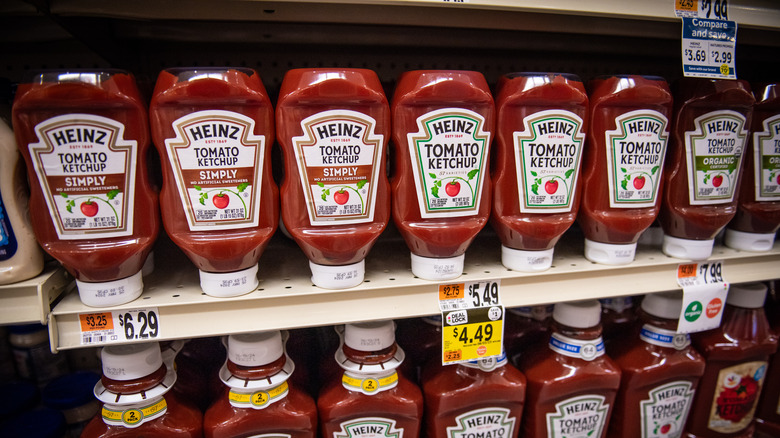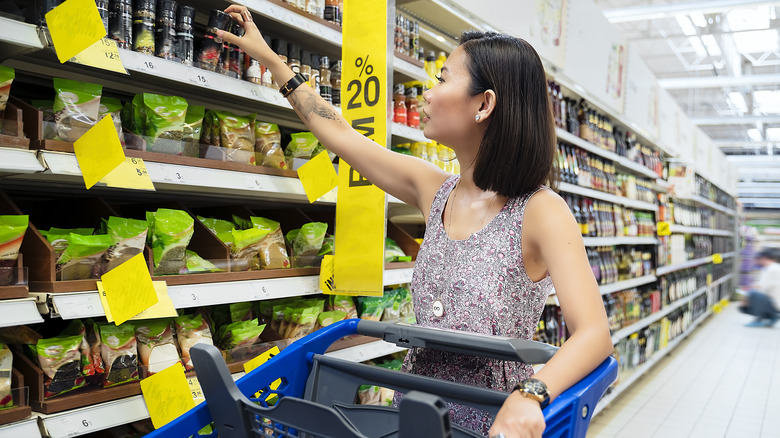When To Think Twice Before Buying Grocery Items On Sale
Everyone wants to get the best deal possible when shopping, especially for groceries. A few dollars saved here and there can add up quickly over the weeks and months, so it's natural for that big old sale sign in your local grocery store to pique your interest. However, just because something is on sale doesn't necessarily make it a great deal.
Discounts and "on sale" labels are designed to entice you into buying things you might not usually purchase, or to buy more of them than planned. They serve as marketing tactics, so sometimes you have to do a little extra work to figure out how good of a deal you're actually getting.
First, make sure that you actually want the item on sale. For instance, if you planned on buying broccoli but find discounted arugula, will your intended broccoli pappardelle pasta recipe still work? And if the bagged salads you buy in a healthy haze always rot in the crisper drawer, it's probably best to steer clear of that BOGO sale.
Check other brands and price by weight
Often, it's the pricier items that go on sale, usually because they haven't sold as well as the store hoped. This could mean a fancy bottle of olive oil or a jar of marinara that, even when half off, still costs twice as much as the store brand. Maybe that $20 jar of tomato sauce will save your life. But if you're on a budget, the $5 generic brand might be a better deal for you.
Sometimes, a smaller bottle of a product like ketchup is on sale and appears to be less expensive than the larger bottle of the same brand. In such cases, check the price per weight, which is generally indicated on the sale tag. If the smaller bottle costs $2 and the larger one $3, but the larger bottle contains twice the volume, then the larger ketchup will actually give you more bang for your buck.
Examine discounted perishable items closely
Perishable items like produce, meat, and dairy are often sold at discounted rates as they near their expiration dates. While this may work if you intend to consume them right away, purchasing discounted chicken that expires tomorrow when you won't use it for several days is wasteful. You'd be throwing away your money. Always perform a sniff test for meat, poultry, and fish in such scenarios, but keep in mind a sniff test is just one sensory clue as to whether your food is truly spoiled.
Closely inspect discounted produce before buying. Do those berries have hidden moldy spots on the bottom? Have those peaches been thoroughly bruised and battered by clumsy shoppers? Is that cilantro starting to yellow around the edges? Using your best judgment can be the difference between purchasing a delicious blueberry pie and ending up with a rotten dessert that needs immediate disposal. If discounted zucchinis look slimy, compare them with non-discounted options to see if saving a few cents is actually worth it.



